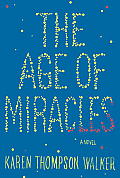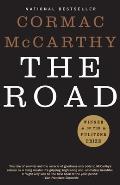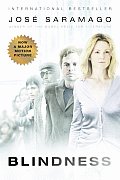
I've always been drawn to stories about the end of the world — or the end of the world as we know it, anyway. If an unknown planet is set to collide with the earth (
Melancholia) or a man is having visions of the apocalypse (
Take Shelter) or an epidemic of blindness is quickly spreading across a city (
Blindness), I will be there to watch.
I know I can't resist these kinds of stories, but it has taken me a long time to figure out why.
Eight years ago, I began to write my own disaster story. In my novel, The Age of Miracles, the rotation of the earth has suddenly begun to slow. As a result, the days stretch far beyond 24 hours, darkness and light fall out of synch with the clocks, gravity is affected, people panic as plants and crops start to die and birds begin to fall from the sky.
As I began to trace the effects of these events on the lives of the main character, Julia, an 11-year-old girl, and her family, I finally recognized what, for me, has always been the true hidden pleasure of end-of-the-world stories. And it's this: stories like these remind me of the value of everyday life.
 When everything normal is slipping away, everything normal takes on new meaning. The ordinary begins to seem extraordinary. Minor pleasures become major ones. Clean clothes, for example. Hot food. Soap. When a group of haggard survivors on AMC's The Walking Dead arrive at a farm house, where one family has managed to keep the zombies at bay, there's something unexpectedly meaningful about the sight of a dinner table: to eat a meal on a plate, to sit in a chair, to drink water from a glass. These simple things seem suddenly miraculous.
When everything normal is slipping away, everything normal takes on new meaning. The ordinary begins to seem extraordinary. Minor pleasures become major ones. Clean clothes, for example. Hot food. Soap. When a group of haggard survivors on AMC's The Walking Dead arrive at a farm house, where one family has managed to keep the zombies at bay, there's something unexpectedly meaningful about the sight of a dinner table: to eat a meal on a plate, to sit in a chair, to drink water from a glass. These simple things seem suddenly miraculous.
One of the most moving moments in Cormac McCarthy's The Road, a novel full of such moments, is when, in a ravaged landscape where little of our world is left, the father introduces his young son to something that once was commonplace, carbonated sugar water in a can: a Coke.
In Jose Saramago's Blindness, after society disintegrates and water stops running from the city's pipes, a blind woman's makeshift shower in a rainstorm — her first bath in weeks — becomes, in Saramago's words: "The most beautiful and glorious thing that has happened in the history of the city." And when I read that book for the first time, I remember, after so many descriptions of blindness, feeling strangely astonished by the simple fact that I could see.
 The process of writing The Age of Miracles sometimes produced a similar sensation in me. How amazing, it began to seem to me, as I walked around my neighborhood, that we live on a planet that spins in space, and that the sun rises and sets when we expect it will. How extraordinary that bananas are grown far away and then shipped to our shelves. How strange and wonderful that there are creatures on earth that are born with wings and endowed with the power to fly.
The process of writing The Age of Miracles sometimes produced a similar sensation in me. How amazing, it began to seem to me, as I walked around my neighborhood, that we live on a planet that spins in space, and that the sun rises and sets when we expect it will. How extraordinary that bananas are grown far away and then shipped to our shelves. How strange and wonderful that there are creatures on earth that are born with wings and endowed with the power to fly.
I'll know I've done my job if the experience of reading my novel were to make even one person for even one moment feel that way too.